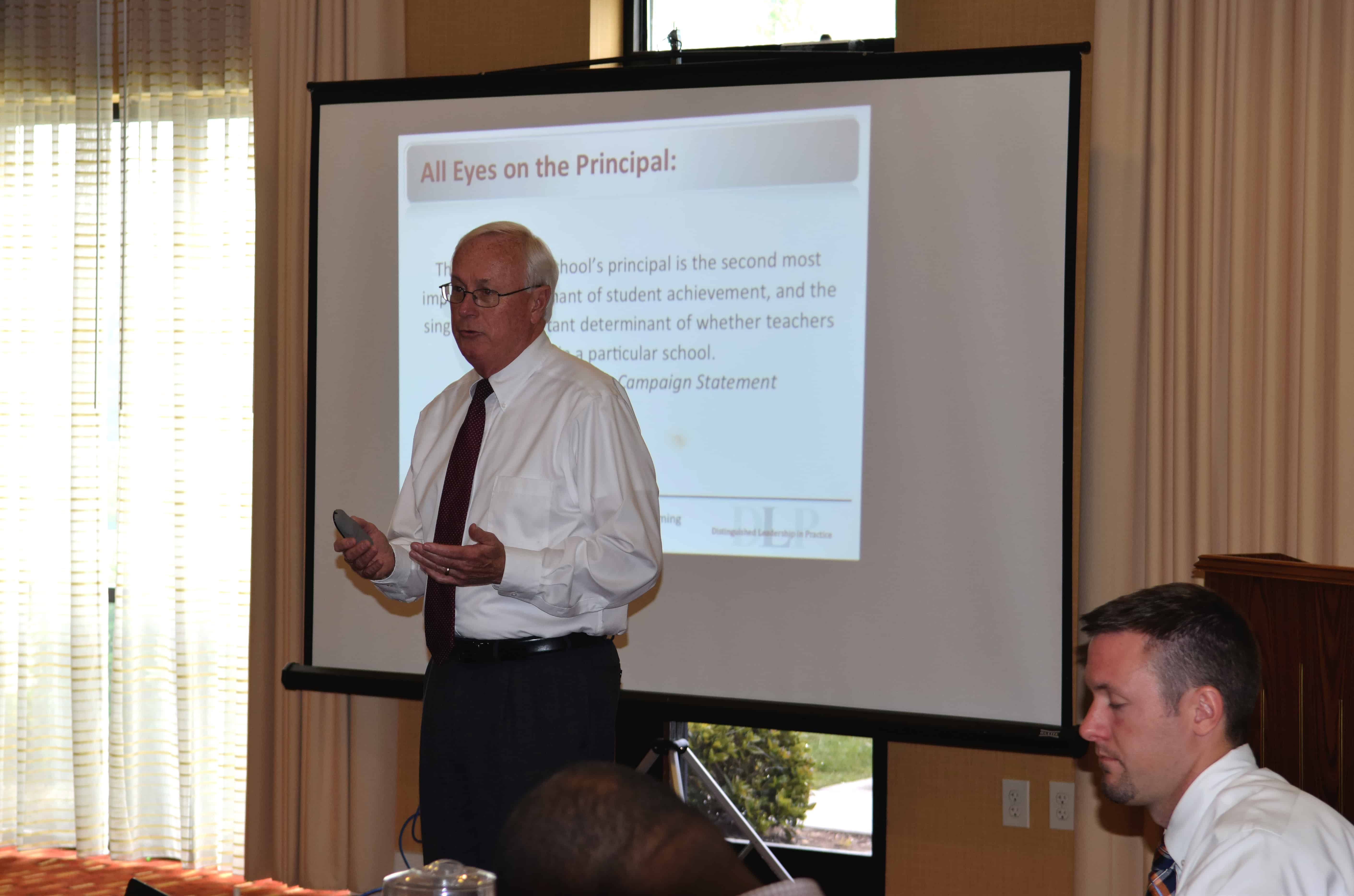Through its national Principals Path to Leadership Grant, The American Express Foundation has awarded $365,000 to The N.C. Principals & Assistant Principals’ Association (NCPAPA) to support the Association’s Distinguished Leadership in Practice (DLP) program.
The Association was one of five award winners out of a nationally competitive field of 70 states, local school districts, and nonprofits.
Other award recipients included the Texas-based nonprofit Leaning Forward, the Alabama State Department of Education, Arlington Independent School District in Texas, and the New York City Leadership Academy.
The Principals Path to Leadership Grant is a joint effort between the American Express Foundation and the National Association of Secondary School Principals (NASSP) to expand effective principal preparation programs across the nation.
“We are pleased to partner with NASSP to award grants to these five exemplary organizations that have already made strides in principal leadership training,” said American Express Foundation President Timothy J. McClimon in a press release announcing the recipients.
“By giving more principals access to these programs, we hope to help students and schools thrive.”
“Principal leadership is an essential component of any school-wide improvement initiative, especially now as schools remodel their internal structures to implement college and career-ready standards,” said NASSP Executive Director JoAnn Bartoletti in the same release.
The award will provide long-term sustainability to the NCPAPA’s Distinguished Leadership in Practice program. The program provides training and support to 135 early-career principals and assistant principals to reduce turnover and enhance leadership skills.
“Studies show repeatedly that our pool of highly effective school leaders is too shallow for the numbers needed,” said Dr. Shirley Prince, executive director of North Carolina Principals & Assistant Principals’ Association. “This need is exacerbated by high attrition rates for early-career principals, who regardless of the quality of their preparation program, need the right on-the-job development experiences that show them how to lead their schools for continued improvement. Sometimes we don’t provide our assistant principals with high level on-the-job experiences that could accelerate their readiness for entry into the principalship.”
The program provides participants monthly face-to-face meetings, regular small-group sessions, and access to online resources to help current school leaders examine models of distinguished school leadership and put those strategies and skills into practice within their own institutions.
According to Prince, the research-based program is delivered through a year-long series of structured leadership development experiences for school leaders and aligns directly with the state’s evaluation standards and leadership competencies. Leaders are grouped into regional cohorts across the state.
Prince noted that third-party evaluations of the DLP program show past participants strongly believe that the program better prepared them to be be more successful as principals.
“Principals who feel successful rarely leave the profession,” says Prince.
The professional development provided by the DLP program is especially critical for those education professionals who are just entering into a leadership position.
“This grant will allow us to expand on the work of the original DLP program by focusing our attention on early-career school leaders who are most at risk of leaving the principalship,” said Prince. “It will also allow us to focus on assistant principals being prepared for fast entry into the principalship.”
Prince said that the award will help the association reach between 135 to 180 school leaders over the three-year award period.
“We are hoping to receive other grants that will allow us to reach even more school leaders,” said Prince.
Editor’s Note: Dr. Shirley Prince is on the board of directors of the EdNC.
Recommended reading




